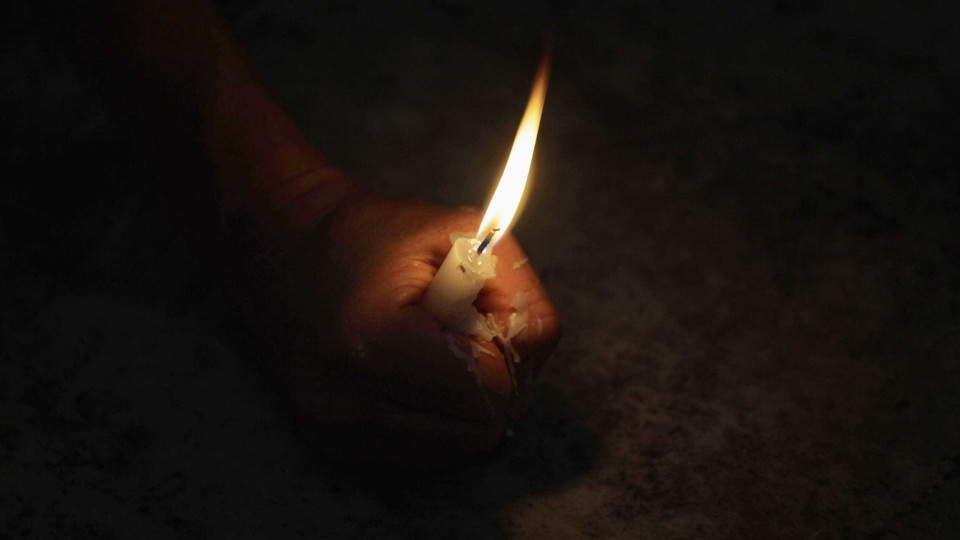Writer Casimiro de Brito Died at 86
Portuguese poet and novelist Casimiro de Brito died today, at 86 years old, of natural causes, in Braga, where he had been living since 2020, the writer's daughter, Silvia Brito, told Lusa.

© Reuters

Cultura Óbito
His body will be laid in state at the Tanatório de Braga, in the Cemitério de Monte d'Arcos in Braga, between 9:30 am and 11:30 am on Saturday.
Poet, novelist, short story writer and essayist, Casimiro de Brito has more than 50 published works, having been awarded several prizes throughout his literary career.
He served as vice-president of the Portuguese Association of Writers and president of the Portuguese P.E.N. Club as well as the Association Européenne pour la Promotion de la Poésie, and developed, for a good part of his life, an intense activity as a promoter of poetry.
"Imitação do prazer" and "Pátria sensível", in fiction, and "Negação da Morte", "Corpo Sitiado" and "Subitamente o Silêncio", in poetry, are some of his works.
Born in Loulé, in 1938, Casimiro de Brito spent his childhood in the Algarve, where he studied at the Escola Industrial e Comercial de Faro.
He began publishing in 1955, bringing together a vast work of poetry, novels, essays and fragments, published in Portuguese and in thirty other languages, and included in more than 200 anthologies in Portugal and abroad.
In 1956, he created a literary page called Prisma de Cristal in the newspaper A Voz de Loulé, in which names such as António Ramos Rosa, Gastão Cruz and Maria Rosa Colaço collaborated.
He also directed the poetry collection 'A Palavra' in Faro, as well as several literary magazines, including Cadernos do Meio-Dia, with Antonio Ramos Rosa.
In this publication, the poets of the literary movement 'Poesia 61' were revealed, of which Casimiro de Brito was a part, alongside Fiama Hasse Pais Brandão, Gastão Cruz, Luiza Neto Jorge and Maria Teresa Horta.
After that, he emigrated to Germany, in the late 1960s, and settled in Lisbon, from 1971 onwards, where he worked in the banking sector.
He won several national and international awards, including the Léopold Sédar Senghor Prize from the Martin Luther King Academy and the World Haiku Prize from the World Haiku Association, as well as the Léopold Senghor International Poetry Prize, the Aleramo-Luzi Poetry Prize, for the Best Foreign Poetry Book, with 'Livro das Quedas' (2004), and also the Best Poet Award at the Poeteka International Festival, in Albania (2008).
His list of distinctions also includes the Grand Poetry Prize from the Portuguese Association of Writers for the book 'Labyrinthus' (1981), the Versilia Prize, from Viareggio, for the Best Foreign Complete Work, for 'Ode & Ceia' (1985), the Poetry Prize from the P.E.N. Club, for the book 'Opus Affettuoso seguido de Última Núpcia' (1997).
He was appointed World Ambassador for Peace (Zurich) and, in 2008, he was awarded the Commendation of the Order of Infante D. Henrique from the Portuguese Republic. In 2016, he was honored in Querenca by the Manuel Viegas Guerreiro Foundation.
In 2020, his complete poetry (up to 2000) was published by Glaciar.
Between 2020 and 2023, he published eight unpublished works ('Razões Poéticas') in Braga, with the support of the Loulé Municipal Council.
[News updated at 6:06 pm]
Read Also: Journalist Antero Greco Dies. He Was Fighting a Brain Tumor (Portuguese version)

Descarregue a nossa App gratuita.
Oitavo ano consecutivo Escolha do Consumidor para Imprensa Online e eleito o produto do ano 2024.
* Estudo da e Netsonda, nov. e dez. 2023 produtodoano- pt.com



